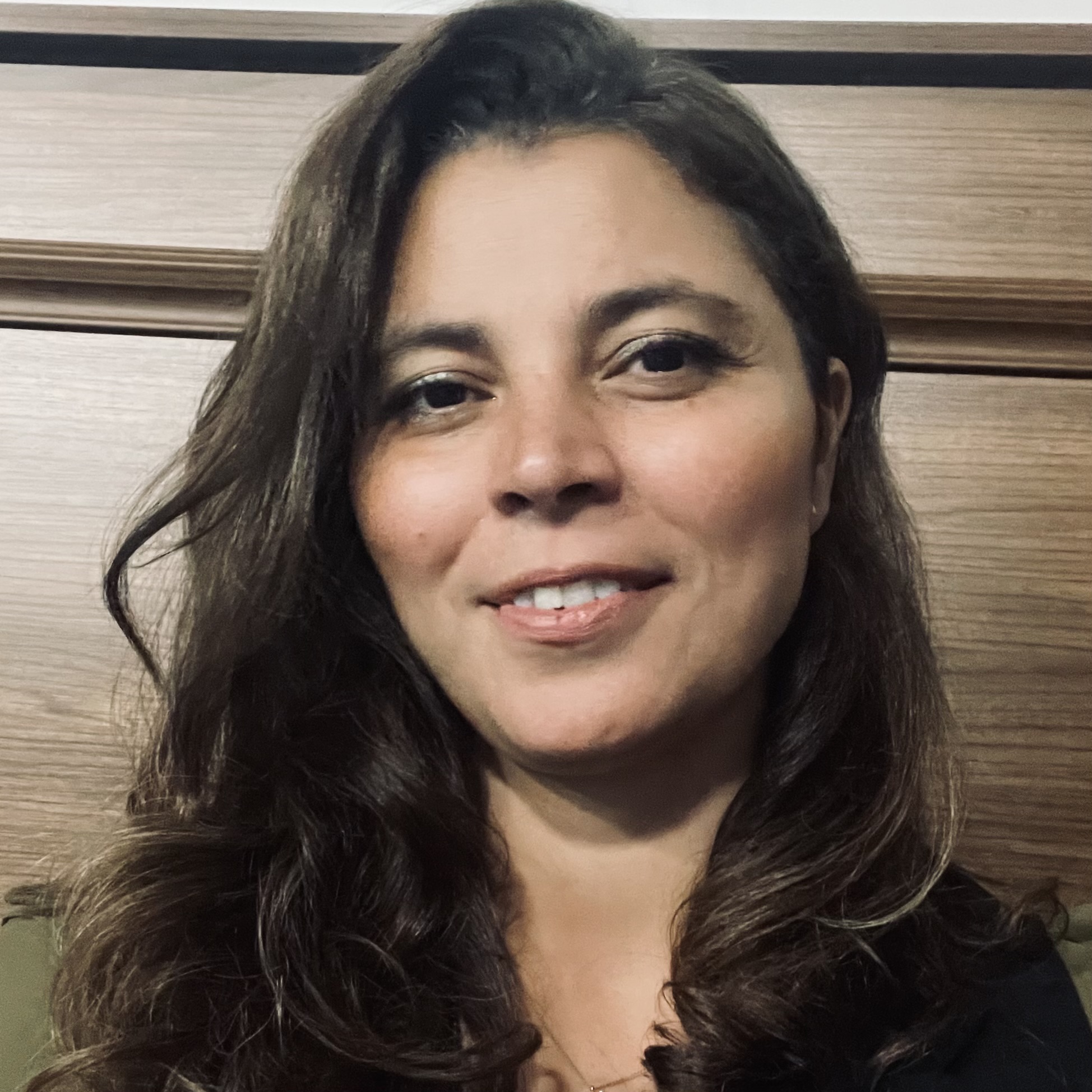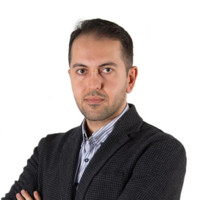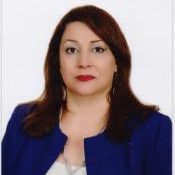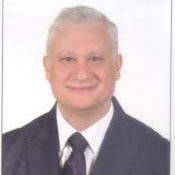Faculty of Economics and Administrative Sciences
Brand Management, 6 ECTS (Blended Online Mobility Erasmus+)

Faculty: Economics and Administrative Sciences
Department: Business Management
Course Code: BUS497
Course Description: Brand Management is a comprehensive course designed to immerse students in the world of branding, emphasizing its paramount importance in modern business. Through this course, students will explore the essence of brands, their strategic significance, and the dynamic landscape they operate in. The curriculum delves into fundamental branding principles, equipping students with the skills to analyze, create, and nurture strong brand identities. It also encompasses consumer behavior insights, global brand management challenges, ethical considerations, and the measurement of brand effectiveness. Moreover, students will engage in practical exercises, including a group project, to develop a deep understanding of brand management’s real-world applications. This course empowers participants to become adept brand strategists ready to tackle the evolving branding challenges of the future.
This course aims to equip students with a profound understanding of brand management, enabling them to navigate the complex and ever-changing world of branding with confidence and expertise. Through a blend of theoretical knowledge and practical applications, students will develop the ability to analyze, create, and strategically manage brands to drive business success. By exploring the core principles of branding, students will gain insights into the significance of brand equity, positioning, and differentiation. They will also delve into the intricacies of consumer behavior and perception, learning how to build and maintain strong brand relationships.
Furthermore, this course aims to foster a global perspective on brand management, addressing the challenges and opportunities associated with international markets. It emphasizes ethical considerations in branding and equips students with the tools to measure and evaluate brand performance effectively. Ultimately, this course aims to empower students to become effective brand strategists who can apply their knowledge to solve real-world brand management challenges and make informed decisions in an increasingly competitive and dynamic business environment.
Learning Outcomes: Upon successfully completing the course, students will be able to;
- Understand the core concepts of brand management
- Understand the factors that will increase the success of brand management
- Understand the brand management process of a person/product
- Understand the impacts of the global business world on brand management
Who can participate: All Students Interested in Brand Management and Marketing in a Colorful World
Prerequisites: Basic Marketing Management Knowledge
Participation Limit: 30 students
Course Materials: Lecture Notes to be shared during the courses
Recommended Books:
- Keller, K. L. (2019). Strategic Brand Management: Building, Measuring, and Managing Brand Equity (5th ed.). Pearson
- Christoph Burmann, Nicola-Maria Riley, Tilo Halaszovich, Michael Schade (2017), Identity-Based Brand Management. SpringerGabler
- Aaker, D. A. (2014). Aaker on Branding, 20 Principles that Drive Success. Morgan James Publishing
- Gary Armstrong, Philip Kotler, Marc Oliver Opresnik (2020). Marketing – An Introduction. Pearson
Curriculum:
| Week 1 | ||||
| Day 1 | Day 2 | Day 3 | Day 4 | Day 5 |
| Basics of Marketing | Market Analysis Segmentation, Targeting, and Positioning The Marketing Mix: 4Ps of Marketing Product, Price, Place, and Promotion Strategies. A Communication Perspective, Brand Positioning, and Value | Brands and Brand Management: Why Do We Study It? | The Role of Brands Branding Concepts: Brand Awareness (Recognition and Recall), Brand Identity and Brand Image, Brand Personality, Brand Judgments, and Brand Loyalty | Brand Equity; Marketing Programs for Brand Equity |
| Week 2 | ||||
| Day 1 | Day 2 | Day 3 | Day 4 | Day 5 |
| Choosing Brand Elements: Other Branding Concepts | Brand Portfolio Management | Global Branding | Managing Brands in The Digital Era | Presentations |
| Online Component |
| Project Work/Presentations |
Assessment and Evaluation
- Attendance/Participation (10%)
- Homework (20%)
- Project Work/Presentations (40%)
- Final Exam (30%)
IAU reserves the right to cancel any of the courses if insufficient enrollment occurs (Less than 10 participants)
Digital Marketing, 5 ECTS (Blended Online Mobility Erasmus+)

Faculty: Economics and Administrative Sciences
Department: Business Management
Course Code: BUS311
Course Description: Because of the digital revolution, companies are increasingly shifting marketing efforts from traditional media to digital media such as search engines, social media, and mobile. New technologies influence customers and also have an impact on firm performance. It is important for marketing managers to understand digital strategies and familiarize themselves with some of the technologies underlying them. This course is designed to provide an introduction to digital marketing and focuses on the integration of technology and data in every aspect of marketing to enhance customer experience and secure business success through meaningful engagement and connections.
This course aims students to understand why customers and data have become so essential to marketing, how brands can use customer data to market more effectively, how marketers and business owners can take full advantage of authentic content and online connections to build brand presence and foster loyalty and learn primary means to connect and engage with customers in a digital world.
Learning Outcomes: Upon successfully completing the course, students will be able to;
- Be familiar with the concepts, theories, and issues in digital marketing
- Familiarize with the key technologies and strategies used by firms in digital advertising
- Understand the key metrics in web and social media analytics
- Develop analytical abilities to understand how digital technology is influencing consumer behavior
- Make independent assessments of the digital marketing strategies of companies
- Develop teamwork, critical thinking, and business communication skills
Who can participate: All undergraduate and postgraduate students in social sciences, business, marketing, humanities, arts, communication, political sciences, philology, and journalism.
Prerequisites: Basic Principles of Marketing Knowledge
Participation Limit: 30 students
Course Materials: eMarketing: The Essential Guide to Marketing in a Digital World, 7th Edition, 2022 (available as a free downloadable PDF, click here)
Recommended Books:
- Sweeney, Benjamin, Digital Marketing QuickStart Guide: The Simplified Beginner’s Guide to Developing a Scalable Online Strategy, Finding Your Customers, and Profitably Growing Your Business. ClydeBank Media LLC, 2022.
- Dave Chaffey and Fiona Ellis-Chadwick, Digital Marketing, 8th Edition, Pearson, 2022
- Chuck Hemann and Ken Burbary, Digital Marketing Analytics: Making Sense of Consumer Data in a Digital World, 2nd edition, Que Publishing, 2018
Curriculum:
| Week 1 | ||||
| Day 1 | Day 2 | Day 3 | Day 4 | Day 5 |
| Introduction to Marketing and Digital Marketing | Online Market Research and Digital Marketing Strategy | Search Engine Optimization (SEO) and User Experience (UX) | Web Development and eCommerce | Content Marketing |
| Week 2 | ||||
| Day 1 | Day 2 | Day 3 | Day 4 | Day 5 |
| Social Media Marketing | Quiz – I Direct marketing | Search and Social Media Advertising | Online and Display Advertising | Quiz – II Web analytics |
| Online Component |
| Presenting Group Project Presentations |
Assessment and Evaluation:
- Quiz – I (15%)
- Quiz – II (15%)
- Group Project Presentation (30%)
- Final Exam (40%)
IAU reserves the right to cancel any of the courses if insufficient enrollment occurs (Less than 10 participants)
International Organizations and World Politics, 5 ECTS (Blended Online Mobility Erasmus+)

Faculty: Economics and Administrative Sciences
Department: Political Science and International Relations
Course Code: PSR431
Course Description: The course mainly explores international organizations’ role, functions, and effectiveness in international politics from theoretical/conceptual and empirical perspectives. In doing so, the course also examines approaches of great powers and middle powers to the issues of international organizations, global governance, and world politics in detail. While exploring possible ways of improving the capacity of the international community as a whole to deal with global challenges, the course aims to help students gain a deeper understanding of how international organizations work (or don’t), as well as the margins of maneuverability within them for improving outcomes. The course combines theoretical and policy-oriented perspectives in examining the performance of international organizations in the issue-areas of peace and security, economic and social development, democratization, and human rights.
Learning Outcomes: Upon successfully completing the course, students will be able to;
- Analyze the role and status of international organizations in world politics from theoretical and empirical perspectives
- Analyze the approaches of great powers and middle powers to the issues of international organizations, global governance, and world politics in detail
Who can participate: The course is open to undergraduate and graduate students in social sciences, international relations, humanities, arts, communication, political science, economics, management, journalism, and business administration
Prerequisites: Desire to enhance knowledge and improve critical thinking skills in international politics
Participation Limit: 20 students
Course Materials: Readings will be shared with students. There is a course book, recommended journal articles, policy briefs, and think tank reports. Students will also watch interesting videos on YouTube concerning the issues of daily lectures.
Curriculum:
| Week 1 | ||||
| Day 1 | Day 2 | Day 3 | Day 4 | Day 5 |
| Theoretical Approaches to International Organizations and World Politics – Mainstream Perspectives | Theoretical Approaches to International Organizations and World Politics – Critical/Alternative Perspectives | The Postwar Liberal International Order and the United Nations system | The Emerging Post-liberal International Order and Challenges to the United Nations System | American Approaches to World Politics and International Organizations – The Case of NATO and American Hegemony |
| Week 2 | ||||
| Day 1 | Day 2 | Day 3 | Day 4 | Day 5 |
| European Approaches to International Organizations and World Politics – The Case of the European Union | Chinese and Russian Approaches to International Organizations and World Politics – The Cases of the Shanghai Cooperation Organization, BRICS, and the Belt and Road Initiative | International Organizations and World Politics – Perspectives from the Global South | International Organizations and World Politics Concerning Climate Change, Pandemics, Artificial Intelligence, Refugees and Migrants | The Future of Globalization and Debates on a new Cold War – The Promise of International Organizations in the Emerging Century |
| Online Component |
| Presenting Research Projects Presentations |
Assessment and Evaluation
- Class Attendance & in-class Participation (10%)
- Research Project (25%)
- Research Project Presentations (25%)
- Final Exam (40%)
IAU reserves the right to cancel any of the courses if insufficient enrollment occurs (Less than 10 participants)
SAP® S/4HANA: Integration of Business Processes, 5 ECTS (Blended Online Mobility Erasmus+)

Instructor: Ernst Schulten, (Dipl. Betriebswirt (FH), M.Sc)
Email: [email protected]
Short Biography: Click Here
Faculty: Economics and Administrative Sciences
Department: Business Management
Course Code: BUS496
Course Description: The SAP® S/4HANA Integration of Business Processes (IEE2E) course is a 10-day training in which students from any university learn how integrative business processes in an enterprise operate against a background of business knowledge.
Course Aim: Students learn how the basic integrative business processes in:
- SAP® Basis & Fiori
- External and Internal Accounting – Embedded Analytics
- Purchasing and Sales
- Production planning and control
- Human Experience Management
- Project Systems
- Enterprise Asset Management
Interact with the SAP® S/4HANA Application. The course provides participants with a broad basic knowledge of core business processes, business contexts, and the integration of business processes in SAP® S/4HANA. They will be enabled based on hands-on-system work via SAP® GUI and Fiori to be junior consultants at consulting companies like PwC, Deloitte, KPMG, etc. An interactive SAP® case study joins the journey through the processes. The course serves as an official certification preparation for the certification standard IEE2E.
Learning Outcomes: Upon successfully completing the course, students will be able to;
- Understanding SAP® S/4HANA Architecture: Gain insights into the structure and components of SAP® S/4HANA.
- Mastering Core Business Processes: Learn about key business processes, including order-to-cash, procure-to-pay, and plan-to-produce.
- Integration of Different Modules: Understand how various SAP® modules (like FI, CO, MM, SD, etc.) interact and integrate within the system.
- Configuration Basics: Acquire basic configuration skills for different SAP® modules.
- Data Management: Learn about data flow and management within SAP® S/4HANA, including master and transaction data.
- Problem-Solving Skills: Develop skills to troubleshoot and resolve common integration issues.
- Hands-On Experience: Gain practical experience through exercises and case studies that simulate real-world scenarios.
- Foundation for Advanced Topics: Build a strong foundation for further specialization in SAP® modules or advanced topics like SAP® S/4HANA.
Who can participate: All undergraduate and postgraduate students in social sciences, business, marketing, humanities, arts, communication, and journalism.
Prerequisites: Good computer skills
Participation Limit: 30 students
Recommended Books:
- The book for the course: SAP® Training in 10 Days – Integrated Business Processes in SAP® S/4HANA by Ernst Schulten
- Case-Study: Logistics, FI/CO and HCM in the Industrial Operation V.2.0 by Ernst Schulten
Curriculum:
| Week 1 | ||||
| Day 1 | Day 2 | Day 3 | Day 4 | Day 5 |
| SAP® History, Basis & Fiori | External and Internal Accounting | External and Internal Accounting | Purchasing Warehouse Management | Production Planning and Control |
| Week 2 | ||||
| Day 1 | Day 2 | Day 3 | Day 4 | Day 5 |
| Production Planning and Control | Embedded Analytics | Human Experience Management | Project Systems | Enterprise Asset Management |
| Online Component |
| Project Presentations |
Assessment and Evaluation
- Homework (5%)
- Assessment-I (25%)
- Assessment-II (40%)
- Assessment-III (30%)
Optionally: The participants are allowed to register for a certification exam to receive an official SAP® certificate that is fully recognized in the industry. The examination fee is 150.00 EUR (incl. VAT charged by SAP®). It is not part of the program fee.
IAU reserves the right to cancel any of the courses if insufficient enrollment occurs (Less than 10 participants)
Faculty of Engineering
Multi-Criteria Decision Making, 5 ECTS (Blended Online Mobility Erasmus+)

Instructor: Assoc. Prof. Dr. Nima Mirzaei
Email: [email protected]
Faculty: Engineering
Department: Industrial Engineering
Course Code: INE460
Course Description: We live in a complex world with diverse people, firms, and governments whose behaviors aggregate to produce novel, unexpected phenomena. We need to make strategic decisions in uncertain and complex situations in which information is ambiguous. Effective decision-making requires the adoption of decision approaches that fit the complexities of these situations and the efficient management of decision-making processes. Within the two weeks, participants will be able to learn popular decision-making methods and software to assist them in decision-making when facing a real-life problem.
This course deliberates decision-making under uncertainty by addressing Multi-Criteria Decision Making (MCDM) techniques. MCDM is a collection of methods for trading off different alternatives’ performance on multiple conflicting objectives; methods discussed include the Analytic Hierarchy Process (AHP), Analytic Network Process (ANP), and Technique for Order of Preference by Similarity to Ideal Solution (TOPSIS) methods. Both qualitative and quantitative factors are considered to evaluate alternatives.
Finally, SuperDecion software is introduced in this course as a complementary tool for the decision-making approach.
Learning Outcomes: Upon successfully completing the course, the students will be able to;
- Configure the Problems by Analytical Thinking and Classify the Problems
- Cooperate with a Group for a Decision-making Process
- Implement an MCDM Approach to a Real-life Problem and Apply the Method in Professional Practice
- Apply AHP, ANP, and TOPSIS Multi-criteria Decision-making Techniques
- Use Computer Programs (SuperDecion and Excel) to Model and Solve a Problem
Prerequisites: Basic Knowledge of Mathematics and Statistics
Who can participate: Engineering, Social Sciences, Humanities, Communication, Architecture, Business, and Marketing Students
Participation Limit: 20 students
Course Materials: Microsoft PPT, Books, Articles, and Videos.
Curriculum:
| Week 1 | ||||
| Day 1 | Day 2 | Day 3 | Day 4 | Day 5 |
| Basic Concepts of Multi-Criteria Decision Making (MCDM) | Analytic Hierarchy Process (AHP) | Case studies and Computer Applications for AHP (SuperDecion Program) | Analytic Network Process (ANP) | Midterm Exam |
| Week 2 | ||||
| Day 1 | Day 2 | Day 3 | Day 4 | Day 5 |
| Case studies and Computer Applications for ANP (SuperDecion program) | Technique for Order of Preference by Similarity to Ideal Solution (TOPSIS) method, model practice, advantages, and disadvantages | Application of TOPSIS in Excel | Real-Life Case Studies Evaluation and Discussion | Final Exam |
| Online Component |
| Project Presentations |
Assessment and Evaluation:
- Project Presentations (30%)
- Midterm Exam (30%)
- Final Exam (40%)
IAU reserves the right to cancel any of the courses if insufficient enrollment occurs (Less than 10 participants)
Faculty of Architecture and Design
Istanbul as a Living Laboratory: Urban Analysis & Architectural Mapping, 6 ECTS (Blended Online Mobility Erasmus+)

Faculty: Architecture and Design
Department: Architecture
Course Code: ARC360
Course Description: Istanbul is not merely a city but a multilayered urban archive shaped by centuries of cultural, spatial, and social transformation. Its streets, buildings, and public spaces function as an open textbook where architectural ideas, urban patterns, and everyday life intersect.
This intensive summer course treats Istanbul as a living laboratory, introducing students to urban analysis and architectural mapping as essential tools for reading and interpreting complex urban environments. Through lectures, guided urban walks, site-based observations, and diagrammatic studies, participants will explore how architectural form, movement, public space, and social activity interact within the city.
The course emphasizes learning through direct experience. Rather than studying the city from a distance, students will analyze real urban sites, translate spatial data into analytical drawings and mappings, and construct architectural narratives that reveal the hidden structures of urban life.
Learning Outcomes: Upon successfully completing the course, the students will be able to;
- Explain fundamental concepts and theoretical frameworks of urban analysis and architectural mapping
- Analyze urban form, spatial organization, and public space through architectural criteria
- Interpret relationships between built form, movement, and social behavior in urban environments
- Apply site-based observation and field study methods to real urban contexts
- Produce analytical drawings, diagrams, and mappings to represent urban data
- Develop architectural narratives based on spatial, cultural, and morphological analysis
- Communicate urban and architectural analyses effectively through visual, verbal, and written presentations
Prerequisites: No formal prerequisites (Basic familiarity with representation and urban spatial concepts is recommended)
Who can participate: Architecture, Interior Architecture, Urban Design, Landscape Architecture, and City & Regional Planning students
Participation Limit: 20 students
Course Materials: Lecture presentations (PPT), academic articles, maps, architectural drawings, visual references, and digital resources.
Curriculum:
Field visits are scheduled between 09:00 and 13:30 (Tentative areas include Balat, Eminönü, Karaköy, Bankalar Caddesi, and İstiklal Street).
| Week 1 (Reading the City) | ||||
| Day 1 | Day 2 | Day 3 | Day 4 | Day 5 |
| Istanbul as a Living Laboratory: Introduction to Urban Analysis | Urban Morphology and Spatial Layers: Field Observation & In-Class Discussion | Architectural Mapping & Diagramming Techniques: Field-Based Analysis | Urban Walk & Site Observation: Reading Public Space and Movement | Analytical Mapping Workshop & Midterm Review: Processing Field Data |
| Week 2 (Mapping Urban Experience) | ||||
| Day 1 | Day 2 | Day 3 | Day 4 | Day 5 |
| Public Space, Movement, and Urban Life: Urban Walk & On-Site Analysis | Cultural and Historical Layers of Istanbul: Field Observation & Mapping | Translating Urban Data into Architectural Narratives: Studio + Field Synthesis | Final Project Development & Studio Critique: Integrating Field Studies | Wrap-Up, Final Presentations & Discussion: Reflecting on Field Experience |
| Online Component |
| Project Presentations |
Assessment and Evaluation:
- Midterm Analytical Study (30%)
- Project-based Presentations (20%)
- Final Mapping Project & Presentations (50%)
IAU reserves the right to cancel any of the courses if insufficient enrollment occurs (Less than 10 participants)
Faculty of Fine Arts
Art, History, and Heritage of Anatolia, 5 ECTS (Blended Online Mobility Erasmus+)

Instructor: Assist. Prof. Dr. Mesut Batuhan Çankır
Email: [email protected]
Short Biography: Click Here
Faculty: Fine Arts
Department: Art and Culture Management
Course Code: SAY331
Course Description: Istanbul, one of the oldest cities in the world, a city located on two continents, is the biggest city in Turkey. Also, the new center of modern and contemporary art with its historical and cultural roots. In this beautiful city, we would like to show Anatolian Civilizations and Arts, Traditional and Contemporary Turkish Arts by interactively visiting museums.
Within the two weeks, students will learn quite a lot of information about Anatolian and Turkish art through presentations in classrooms, and then they will apply this information in museums experimentally. The Course contains Hittite, Phrygian, Lydian Arts, Traditional Arts, Calligraphy, Miniatures, Tiles, the best works of contemporary Turkish artists, and many more.
The museums that will be visited are the Istanbul Archeological Museums, Topkapı Museum, Sakıp Sabancı Museum, Pera Museum, Proje 4L Museum, İstanbul State Art and Sculpture Museum, and Istanbul Modern Museum.
Learning Outcomes: Upon successfully completing the course, the students will be able to;
- Identify Anatolian, Traditional, and Contemporary Turkish art
- See and Discover Istanbul’s Museums
- Understand the Differences Between Art Disciplines and Movements
Who can participate: The course is open to all undergraduate and graduate students
Prerequisites: –
Participation Limit: 20 students
Course Materials: Readings will be shared during the course
Curriculum:
| Week 1 | ||||
| Day 1 | Day 2 | Day 3 | Day 4 | Day 5 |
| Meeting Lecture: Anatolian Civilizations | Visiting Sakıp Sabancı Museum | Lecture: Traditional Turkish Art | Visiting Istanbul Archaeological Museums | Visiting Istanbul Museum of Painting & Sculpture |
| Week 2 | ||||
| Day 1 | Day 2 | Day 3 | Day 4 | Day 5 |
| Lecture: Contemporary Turkish Art & Quiz | Visiting Museum of Turkish and Islamic Art | Visiting Pera Museum & Taksim Galleries | Visiting Istanbul Modern | Final Exam & Wrap-up |
| Online Component |
| Project Presentations |
Assessment and Evaluation:
- Midterm Exam (20%)
- Project Presentation (40%)
- Final Exam (40%)
IAU reserves the right to cancel any of the courses if insufficient enrollment occurs (Less than 10 participants)
Culinary Art of Anatolia (Master Chef), 3 ECTS

Instructor: Assist. Prof. Dr. Esin Mojtahedi
Email: [email protected]

Instructor: Assist. Prof. Dr. Zehra Yardı
Email: [email protected]
Faculty: Fine Arts
Department: Gastronomy and Culinary Arts
Course Code: GMS323
Course Description: A big part of traveling and experiencing a new culture is exploring the local cuisine. In the case of Turkey, there is a wide variety of tastes and influences. Turkish cuisine is largely the heritage of Ottoman cuisine, which can be described as a fusion and refinement of Central Asian, Middle Eastern, and Balkan cuisines. Turkish cuisine has, in turn, influenced other cuisines in the region and beyond.
This course provides an introduction to the rich Turkish Culinary Culture by way of theoretical information, practical lessons in the state-of-the-art kitchens of Istanbul Aydin University’s Gastronomy Department, and a tasting trip to Istanbul.
Learning Outcomes: Upon successfully completing the course, the students will be able to;
- Identify Different Staples of Turkish Food Culture with its History and Cultural Influences
- Know the Ingredients, Preparation Techniques, and Serving Methods of Various Food Groups
- Cook some Popular Turkish Dishes
Prerequisites: Interest in Gastronomy and Culinary Arts
Who can participate: Students who want to know Turkish Cuisine better
Participation Limit: 20 students
Course Materials: Readings will be shared during the course
Curriculum:
| Week 1 | ||||
| Day 1 | Day 2 | Day 3 | Day 4 | Day 5 |
| Introducing the kitchen, equipment, and working rules Information about Turkish Cuisine (Theoretical Presentation – I) Workshop: Simit | Workshop: Turkish Mezze (Mercimek Köftesi, Acılı Ezme, Çerkez Tavuğu, Pembe Sultan, and Muhammara) | Workshop: Olive Oil Food (Barbunya Pilaki, Taze Fasulye, and İmambayıldı) | Workshop: Tavuk Şiş, Meyane Pilavı, and Paçanga Böreği Midterm Exam: Sarma | Workshop: Hünkârbeğendi and Mercimek Çorbası Information about Turkish Cuisine (Theoretical Presentation – II) |
| Week 2 | ||||
| Day 1 | Day 2 | Day 3 | Day 4 | Day 5 |
| Workshop: Helva and Sütlaç Information about Turkish Cuisine (Theoretical Presentation – III) | Workshop: Lokma and Zerde Information about Turkish Cuisine (Theoretical Presentation – IV) | Workshop: Erişte, Gavurdağı Salatası, and Kadınbudu Köfte | Workshop: Börek Final Exam: Çılbır | General Evaluation Test – Turkish Cuisine |
Assessment and Evaluation:
- Active Participation (20%)
- Midterm Exam (40%)
- Final Exam (40%)
IAU reserves the right to cancel any of the courses if insufficient enrollment occurs (Less than 10 participants)
Faculty of Medicine
Genetics and Medical Biotechnology, 6 ECTS (Blended Online Mobility Erasmus+)

Faculty: Medicine
Department: Medical Biology and Genetics
Course Code: MED111
Course Description: Medical biotechnology, with the growth in genetic engineering technology and the advancement of research in biotechnology, has experienced rapid growth in recent years. This natural science field leads to opportunities to develop innovative technologies to improve human health by preventing, diagnosing, and treating genetic diseases. In this line, Medical Biotechnology has revolutionized the health system and combines engineering technologies with biological sciences to regulate systems and living organisms. Genome sequencing, cloning, stem cell research, and gene therapy, combined with CRISPR/Cas9 technology, are the most important benefits of genetic engineering that make this field indispensable in the modern world.
The course aims to teach advanced lessons in the biological processes meant for medical biotechnology and other purposes. During the course, the concept of medical biotechnology and its connections with human genetic diseases will be covered systematically from the central dogma of genetics and then generalized with the recent applications in biotechnology, with special topics.
The course is designed in two parts which will provide students the opportunity to learn not only the theoretical part of the course but also apply the practical part in our laboratories by using Genomic DNA Isolation and Measurement Procedures, Polymerase Chain Reaction (PCR), RFLP, Agarose Gel Electrophoresis, Sequencing, and Bioinformatics Tools. A unique aspect of this course is its focus on biotechnology in medicine.
Learning Outcomes: Upon successfully completing the course, the students will be able to;
- Understand Basic Concepts of Genetics and Medical Biotechnology
- Learn Specific Techniques Applied in Medical Genetics
- Gain Knowledge About Genetic Engineering Technology
- Learn Innovative Techniques in Medical Biotechnology
Prerequisites: Basic Genetics and Computer Skills
Who can participate: Students from the Faculty of Medicine, Genetic Engineering, Science, and Arts (Genetics, Biotechnology, Bioinformatics, Neuroscience, Biochemistry) departments.
Participation Limit: 20 students
Curriculum:
| Week 1 | ||||
| Day 1 | Day 2 | Day 3 | Day 4 | Day 5 |
| The Biotechnology Century and Its Workforce | Introduction to Genes and Genomes, Genomic DNA Isolation, and Measurement | Genetic Engineering: Recombinant DNA Technology and PCR Experiment | Proteins as Final Products of Genes and RFLP Experiment | Medical Biotechnology and Its Applications: Agarose Gel Electrophoresis |
| Week 2 | ||||
| Day 1 | Day 2 | Day 3 | Day 4 | Day 5 |
| Cancer Genetics, Pharmacogenomics, and Bioinformatics Tools | Gene Primer Design: Cloning and Sequencing | The Greatest Discovery: The Human Genome Project and Sequence Analysis | Gene Therapy and CRISPR/Cas9 Technology | Ethics and Medical Biotechnology |
| Online Component |
| Project Presentations |
Assessment and Evaluation:
- Homework (30%)
- Midterm Exam (30%)
- Final Exam (40%)
IAU reserves the right to cancel any of the courses if insufficient enrollment occurs (Less than 10 participants)
Neuroscience, 6 ECTS (Blended Online Mobility Erasmus+)


Faculty: Medicine
Department: Anatomy & Physiology
Course Code: MED106
Course Description: This introductory course in Medical Neuroscience is designed to include the basic principles of organization and function of the Central Nervous System. The course will focus primarily on the cerebral cortex and the subcortical areas of the human brain to illustrate the core concepts in neuroanatomy, neurophysiology, neurobiology, and neuropharmacology. The cellular composition and molecular structure of the brain and the functions of the synapses and neural signaling will be described, and practical sessions will be held.
This course will also refer to specific neurodegenerative and neuropsychiatric diseases of the Central Nervous System and give the basic molecular principles of their pathophysiology and treatment.
The overall goal of this course is to provide the foundation for understanding the structures and functions of the brain underpinning human behavior, emotions, cognition, and learning to give a dynamic picture of the rapidly evolving field of neuroscience and its clinical applications.
Learning Outcomes: Upon successfully completing the course, the students will be able to;
- Identify the Neocortex, Subcortical Brain, and the Functional Areas of the Brain
- Understand Cortical Neuronal Networks that Integrate Movement, Cognition, and Emotion
- Gather Essential Information About Synaptic Transmission and Mechanisms of Neurotransmitter Modulation of Neuronal Activity
- Understand the Pathophysiology of Cognitive Decline
- Discover How Cortical Neuronal Circuits are used to Inspire the Artificial Neural Network
- Understand How Neuroscience is Connected to Artificial Intelligence
Prerequisites: Basic Knowledge of Biology and Enthusiasm
Who can participate: Medical and other Health Sciences, Computer, and Electrical Engineering Students
Participation Limit: 20 students
Course Materials: Lecture Notes, Books, Lab Videos, Problem Sets, and Reading of Original Papers.
Curriculum:
| Week 1 | ||||
| Day 1 | Day 2 | Day 3 | Day 4 | Day 5 |
| Anatomical Organization of the Central Nervous System and Lab Demonstration-I | Functional Areas of the Cerebral Cortex and the Corticospinal Tracts and Lab Demonstration-II | Subcortical Structures: Limbic System and the Basal Ganglia and Lab Demonstration-III | Neurons, Neuroglia, Nerve Fibers, and Blood-Brain Barrier | Midterm Exam |
| Week 2 | ||||
| Day 1 | Day 2 | Day 3 | Day 4 | Day 5 |
| Action Potentials, Synaptic Transmission, and Brain Imaging Techniques | Neurotransmitters and Their Pathways, Genes, and Behavior | The Molecular Neurobiology of Cognitive Function and Neurodegenerative Disorders | The Molecular Neurobiology of Neuropsychiatric Disorders and Addiction | Final Exam |
| Online Component |
| Project Presentations |
Assessment and Evaluation:
- Project Presentations (30%)
- Midterm Exam (30%)
- Final Exam (40%)
IAU reserves the right to cancel any of the courses if insufficient enrollment occurs (Less than 10 participants)
Language Courses
Introduction To Turkish Language and Culture, 5 ECTS (Blended Online Mobility Erasmus+)

Faculty: Arts and Sciences
Department: Turkish Language and Literature
Course Code: TDE380
Course Description: The Turkish language is spoken by over eighty million speakers in Turkey and more than six million speakers in Europe, the Caucasus, and other regions of the world. Learning Turkish offers a greater understanding of regional politics, economics, history, and sociology. This program consists of a two-week Turkish course and a cultural learning program for students coming to our university as part of the ‘Delightful Istanbul Summer School’.
In this course, Turkish grammar, listening, reading, writing, and speaking lessons are given according to the students’ levels (A1-A2-B1-B2-C1). Students receive education taking into account the competencies of the “Common European Framework of Reference for Languages”. In addition to theoretical information, activities that introduce Turkish culture closely are carried out within the scope of the course. Students participating in the program will be given a certificate of participation for attending Turkish classes. Apart from this, students who want a Turkish Proficiency Certificate will take a placement test, and according to the exam results, they will receive a Turkish Proficiency Certificate.
Week 1 and 2 classes will be held from Monday to Friday at determined times. In the second week of the program, a special placement test will be held for students who want to receive the TÖMER Certificate.
Learning Outcomes: Upon successfully completing the course, the students will be able to;
- Understand The Rules of The Turkish Language
- Learn Information About Turkish Culture
- Improve Their Turkish Speaking Skills Within The Scope of The Level They Have Taken
Prerequisites: –
Who can participate: University students who are interested in the Turkish Language and Turkish Culture
Participation Limit: 20 students
Course Materials: A textbook called “Aydın Türkçe Öğreniyor” suitable for A1-A2-B1-B2-C1 levels, printed and digital materials prepared by the teachers themselves are used.
Curriculum:
| Week 1 | ||||
| Day 1 | Day 2 | Day 3 | Day 4 | Day 5 |
| To be announced soon… | To be announced soon… | To be announced soon… | To be announced soon… | To be announced soon… |
| Week 2 | ||||
| Day 1 | Day 2 | Day 3 | Day 4 | Day 5 |
| To be announced soon… | To be announced soon… | To be announced soon… | To be announced soon… | To be announced soon… |
| Online Component |
| To be announced soon… |
Assessment and Evaluation:
- To be announced soon…
IAU reserves the right to cancel any of the courses if insufficient enrollment occurs (Less than 10 participants)
